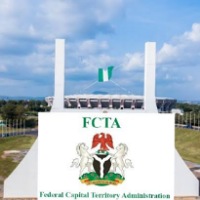Motoring
VW Passes GM in China for First Time in Nine Years

BEIJING – Volkswagen AG (VOW) outsold General Motors Co. (GM) in China for the first time in nine years to recapture the lead among foreign automakers in the world’s largest car market.
VW’s 2013 deliveries in the country, announced last week, increased 16 percent to 3.27 million vehicles, exceeding those of Detroit-based GM, whose sales rose 11 percent to 3.16 million units in China.
Beating GM in China puts VW a step closer to its goal of becoming the world’s largest carmaker by 2018. As the stakes escalate — both have announced combined investment plans totaling $36 billion in the country — they’ll be facing mounting competition from the likes of Toyota Motor Corp. (7203) and Hyundai Motor Co. at a time when the government is cranking up scrutiny on vehicle sales to combat pollution.
 “Volkswagen will probably continue to grow more dynamically in China than GM,” said Frank Schwope, a Hanover, Germany-based analyst with NordLB who recommends buying VW shares. “It’s going to remain neck and neck.”
“Volkswagen will probably continue to grow more dynamically in China than GM,” said Frank Schwope, a Hanover, Germany-based analyst with NordLB who recommends buying VW shares. “It’s going to remain neck and neck.”
Unlike GM, VW counts Hong Kong in its tallies for the country. GM’s figures include light commercial vehicles.
While China may already be the world’s biggest auto market, the country has plenty of room to grow as the number of vehicles on its roads only account for about 6 percent of the population, versus 80 percent in the U.S. and 36 percent in South Korea, according to data compiled by Bloomberg.
Audi Growth
Such opportunities prompted VW to say in November that it will invest 18.2 billion euros ($24.9 billion) in China through 2018. That would help the company double the number of models produced in the country to more than 35, according to VW.
Among the biggest drivers for VW last year was Audi, the top-selling luxury car brand in China, as deliveries expanded 21 percent in 2013. The company is counting on sales of the locally-produced A3 compact car to spur further gains this year. Porsche, which outperformed industry growth last year as Chinese consumers snapped up Cayenne SUVs and Panamera sedans, is counting on its new Macan SUV to drive growth in 2014.
At GM, incoming Chief Executive Officer Mary Barra will face the challenge of regaining the eight-year lead it held in China with the help of the company’s newly appointed country head, Matthew Tsien. GM, which in April laid out plans to invest $11 billion in China through 2016, has said it plans to expand the lineup of vehicles for the low-cost Baojun brand in 2014 and introduce nine new or refreshed SUVs in China in the next four years.
Chevy Underperforms
In 2013, Buicks and Cadillacs led GM’s growth in deliveries, while Chevrolet sales underperformed by expanding 4 percent. GM has said it plans to introduce four new Chevrolet models in the country this year.
All major foreign automakers posted record sales in China last year as it became the first country to see domestic sales of motor vehicles surpass 20 million units — 21.98 million to be exact — in a given year. Sales may exceed 24 million this year, the state-backed China Association of Automobile Manufacturers said last week in Beijing.
Behind GM and VW was Nissan Motor Co. (7201), whose sales climbed to 1.27 million units, followed by South Korea’s Hyundai, whose deliveries climbed about 20 percent to exceed 1 million units for the first time, according to company figures compiled by Bloomberg.
Ford Motor Co. (F) overtook Toyota in China to become fifth among foreign automakers after the Dearborn, Michigan-based company’s sales surged 49 percent.
China’s Motorization
While China’s motorization has been a boon for foreign automakers, pressure is building on the government to step in as pollution and traffic congestion worsens. That’s prompted more Chinese cities to introduce restrictions on vehicle purchases.
The northern Tianjin municipality began restricting its car population this year, joining Beijing, Shanghai, Guangzhou and Guiyang in imposing vehicle quotas.
Shanghai, which is considering a congestion charge for motorists, last month experienced record levels of the lung-constricting smog that teary-eyed Beijing expatriates have come to call the “Airpocalypse.” In Xi’an, the former imperial capital known for its terracotta warriors, pollution soared to 38 times the World Health Organization threshold.
To combat air pollution, China’s State Council, or cabinet, released a national plan in September that called for a 15 percent to 25 percent reduction in particulate matter by 2017 in the three key manufacturing regions anchored by Beijing, Shanghai and Guangzhou.
– BLOOMBERG
Motoring
FCTA Pulls Plugs On Taxi Rank, Terminal Services Contracts

The Federal Capital Territory Administration (FCTA) has ended contracts with taxi rank and terminal operators due to their failure to meet engagement terms and conditions.
Mr. Ubokutom Nyah, the Mandate Secretary of the Transportation Secretariat, FCTA, made this announcement during a meeting with managers of these terminals and taxi ranks in Abuja.
Nyah clarified that due to the operators’ failure to fulfill their engagement terms, the FCTA had to terminate their contracts.
He instructed them to transfer control of the ranks to the Administration within three months, starting from Nov. 21.
He lamented the presence of unauthorized motor parks in the city and assured the readiness of the Administration to establish proper taxi ranks and terminals in the capital.
He revealed that personally visiting the city’s taxi ranks, terminals, and unauthorized motor parks gave him direct insight into the poor condition of these facilities.
He emphasized that as the federal capital city, Abuja deserves better, highlighting that the poor condition of these facilities attracts various criminal elements.
He said “We must rid Abuja of all these. I have gone round the taxi ranks, and of all the places I visited, not one is worthy to be called even a village motor park.”
The Mandate Secretary stressed that the intention wasn’t punitive; rather, it aimed to revamp the sector, introduce new engagement terms, and modernize taxi ranks and terminals in the federal capital.
He also highlighted the plan to increase the number of terminals and ranks where necessary, which would positively impact the administration’s revenue.
He emphasized that this measure was part of a broader effort to eliminate illegal motor parks in Abuja and curb the associated criminal activities.
In response, Mr. Adebisi Lawal, the Operator of Jahi Taxi Rank, praised the administration’s initiative to modernize the taxi ranks and terminals.
Lawal urged the administration to prioritize current operators’ involvement in the selection of new developers for the modernization of the taxi ranks and terminals.
Motoring
Power Show Sees Soldiers Batter LASTMA Officer

It was a show of power at the Ojota area of Lagos on Monday as soldiers pummeled an officer of the Lagos State Traffic Management Authority, (LASTMA).
Eyewitness accounts claim that the ugly scene played out around 8am, and saw about eight soldiers pounce on the yet to identified LASTMA official, while his colleagues took to their heels.
The video of the melodrama has gone viral, where the LASTMA official was appealing to the soldiers, who appeared bent on ‘teaching him a lesson’.
This onslaught comes on the back of a reported assault of a soldier at the same location by LASTMA officials last week.
It would appear that what played out today was the army asserting its authority and defending their khaki as the armed soldiers carried out what looked like a revenge mission.
Eyewitnesses further averred that the victim was rushed to a nearby hospital, after the soldiers left the scene.
It was gathered that the authorities at LASTMA has reported the incident to the military authorities who are said to be looking into the matter.
Meanwhile many members of the public are rejoicing that the soldiers have taught the crude LASTMA official that power is stronger than power, for all their atrocities against motorists on Lagos roads.
Motoring
Intra-City Fares Skyrocket By 98% Month-On-Month – NBS
The impact of the removal of subsidy on Premium Motor Spirit (PMS), otherwise known as petrol, has seen the pump prices of the product skyrocket with a corresponding increase in the cost commercial transportation in Nigeria.
According to the National Bureau of Statistics (NBS), intra-city bus transportation fares across Nigerian cities, measured between May and June 2023, increased from N649.59 to N1,285.41 in June 2023.
This translates to 98 percent growth or N635.82 within the month in view.
The NBS made the data available in its Transport Fare Watch report for June 2023.
In the report, the NBS also shared the breakdown of bus journeys within the cities per drop for constant routes; bus journey intercity (state route); charges per person, amongst others.
On a year-on-year basis, the report has it that bus fares rose by 120.63 percent from N582.61 paid by commuters in June 2022.
The average fare paid by commuters for bus journey intercity per drop rose to N5,686.49 in June 2023 compared to N4,002.16 in May 2023 indicating an increase of 42.09 percent, month-on-month.
The report read, “The average fare paid by commuters for bus journeys within the city per drop increased by 97.88 per cent from N649.59 in May 2023 to N1,285.41 in June 2023.
On a year-on-year basis, it rose by 120.63 per cent from N582.61 in June 2022.
“In another category, the average fare paid by commuters for bus journey intercity per drop rose to N5,686.49 in June 2023, indicating an increase of 42.09 on a month-on-month basis compared to N4,002.16 in May 2023.
“On a year-on-year basis, the fare rose by 55.25 per cent from N3,662.87 in June 2022.”
Biztellers reported that the twin forces of forex pressure and increasing price of Brent in the global market would likely see the pump prices of petrol, increased again in no distant time in Nigeria.











